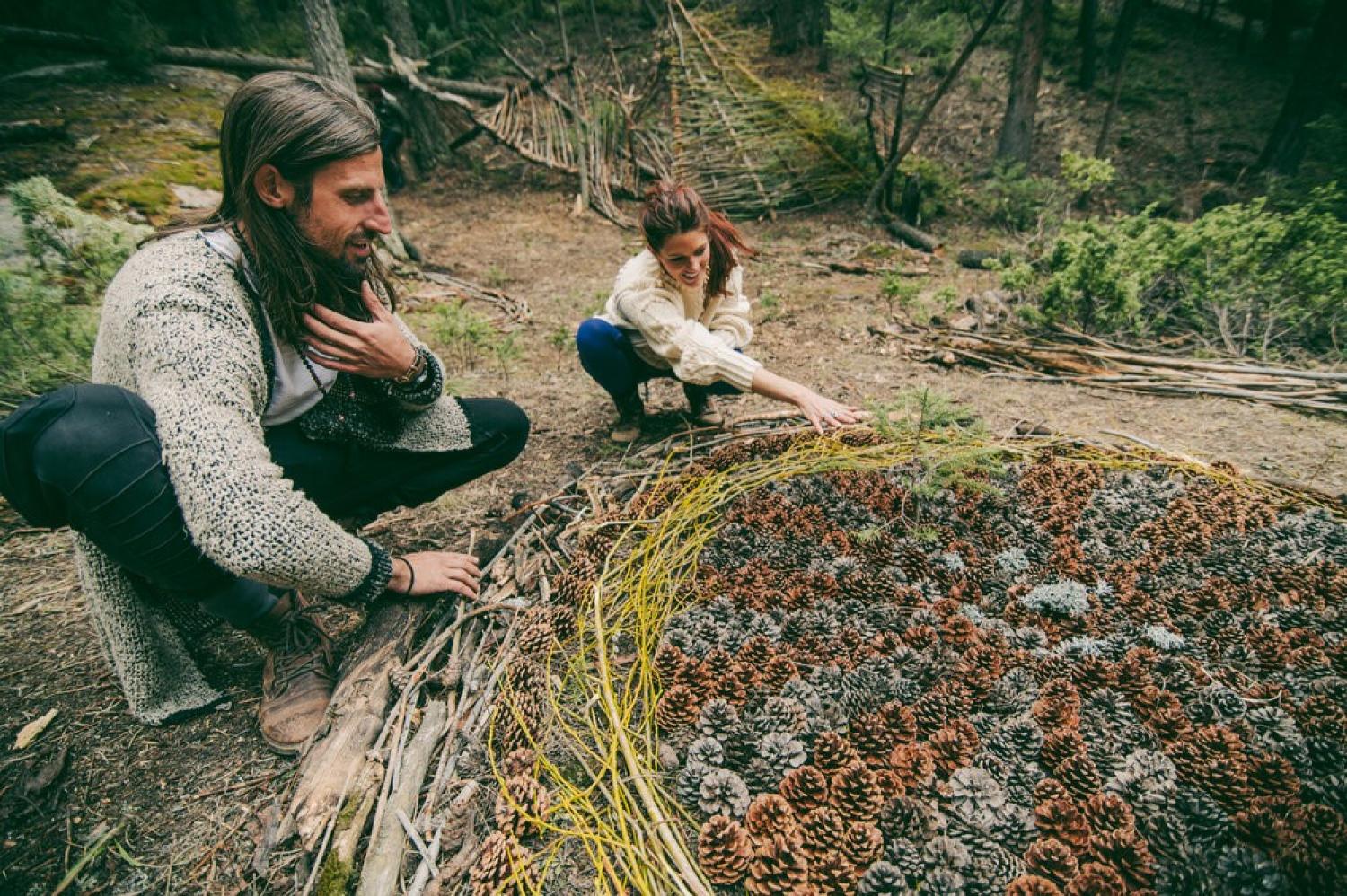Social Permaculture

Keyword: Social Permaculture
Social Permaculture is the praxis of permaculture methodology applied to social relationships. This method of social relating and community building draws inspiration from the intelligence and cycles of the natural environment. Social permaculture is a concept by which communities look to natural environments to model co-existence and co-creation. Patrick Whitefield calls permaculture, ‘the art of designing beneficial relationships.’ Social permaculture is a process that is as collaborative and interwoven with community building as it is with environmental justice. There are many facilities, events and groups locally, nationally and globally that model various forms and elements of social permaculture as a means of changing the social paradigm. Each offers a lens of learning through which we can individually and broadly implement social permaculture within our own lives. We are living in a time where permaculture and sustainability, both environmentally and socially, have become necessary tools to design a livable future.
To preface, permaculture is often described as working with nature, not against it. It encourages planting crops which grow better together rather than separately, and to consider the location of where to effectively maximize the resources of the land. An example of this would be the ‘three sister’s garden’ a historically recognized practice of indigenous communities planting corn, beans and squash together. These crops will yield the most effective production due to their symbiotic relationship. All three play a role in their growth and protection of each other; the corn stalk allows the bean’s vines to grow tall, the beans fix nitrogen into the soil for the corn and squash, and the squash leaves provide shade to mitigate the growth of weeds and defend against browsing herbivores. Although each plant is capable of growing on their own, when planted together they fulfill the needs of the other plants to propagate the most plentiful yield. The relationship cultivated through these plants represents just one of the many social metaphors implied by permaculture practices.
“According to the Permaculture Association, permaculture has three aspects: (1) It is an ethical framework; (2) It involves understanding of how nature works; and (3) It is fundamentally a design approach, in the light of this. Thus, permaculture seeks to understand how nature works and consciously, and ethically, shape human patterns to mimic this. Permaculture characterizes naturally designed social systems in three ‘permaculture ethics’: earth care, people care, and fair share (or return of surplus).”
Photo by Jeff Jones
How can we bring this tangible method of gardening into the complex realm of human relationships and where are we seeing this concept in practice? If we build our community around sustainable relationships we can implement this back into our connection with the earth. A multi-faceted system of symbiotic relationships creates a positive feedback loop between people and the land. An ethical relationship both with the land and our community propagates positive reinforcement of trust and support. If we feed and nurture ourselves through our social relationships we can proliferate this as a parallel to the flora and fauna of our surroundings. A community benefits most when there is a diverse set of skills shared throughout the social ecosystem. Everland is a new addition to conscious community building, focusing on land restoration, eco-retreat experiences and engagement through immersive art. A local example here in the Rocky Mountains, Everland embodies the lessons of the co-existence of permaculture both through environmental and social praxis. A small group of collaborators began the project and are using social permaculture to enlist others to co-create. Optimizing the genius of the individual to build community surrounding Everland to cultivate sustainable living and ecologically conscious gathering space. The founders recognize the limits of their expertise and seek to fill the gaps through the skills of others. They systematically provide food, lodging and support while receiving aid in land restoration, management and sustainable development. Although there are examples of failures and successes of these communal practices, a seemingly utopian agenda is not one of an unattainable reality but a method of conscious, intentional practice towards a better future.
The term Anthropocene is seeping into public rhetoric through conversations of climate change. A concern on the forefront of many, but unfortunately not all. As we face adversity against social justice, climate justice and act against the progressing tensions of the present COVID-19 pandemic, cultivating sustainable communities is as important as cultivating sustainable agricultural systems. Our social environment is bleeding onto the screen in hope for connection. Working at home with limited external relationships have heightened our usage of Zoom meetings and TikTok duets. Our marginalized lands are burning at an ever increasing rate in the American West. Oceans swell from melting glaciers creeping over islands and coastal cities. The imperative act of care must permeate through our being, our kin, and our earth. “...not in the sense of an eco-voluntarism, by placing the agency and responsibility to act on ecological issues within an individual, or even a group of individuals. But rather re-cognizing one’s extensions, influences, co-constituting beings and objects begets a call to participate together, join allegiance with, act-alongside, and act-with.” If we can recognize how we imprint ourselves socially, we can assimilate this to our imprint on the land. Our current climate is in no way detached from our community engagement, relationships and communal interactions.
Photo by Jeff Jones
Bibliography
- Writer, Art and Culture, et al. An Eco-Retreat and Playground Inspired by Burning Man Is Coming to Colorado. 1 May 2020, https://303magazine.com/2019/12/everland-eco-retreat-colorado/
- Aiken, Gerald Taylor. (2017). Permaculture and the social design of nature, Geografiska Annaler: Series B, Human Geography, 99:2, 172-191
- Old Farmer's Almanac. “The Three Sisters: Corn, Beans, and Squash.” Old Farmer's Almanac, https://www.almanac.com/content/three-sisters-corn-bean-and-squash#
- https://www.everland.co/home/#vision
- Social permaculture. (2011). Communities, (153), 14-16. Retrieved from https://colorado.idm.oclc.org/login?url=https://www-proquest-com.colorado.idm.oclc.org/docview/911987427?accountid=14503

